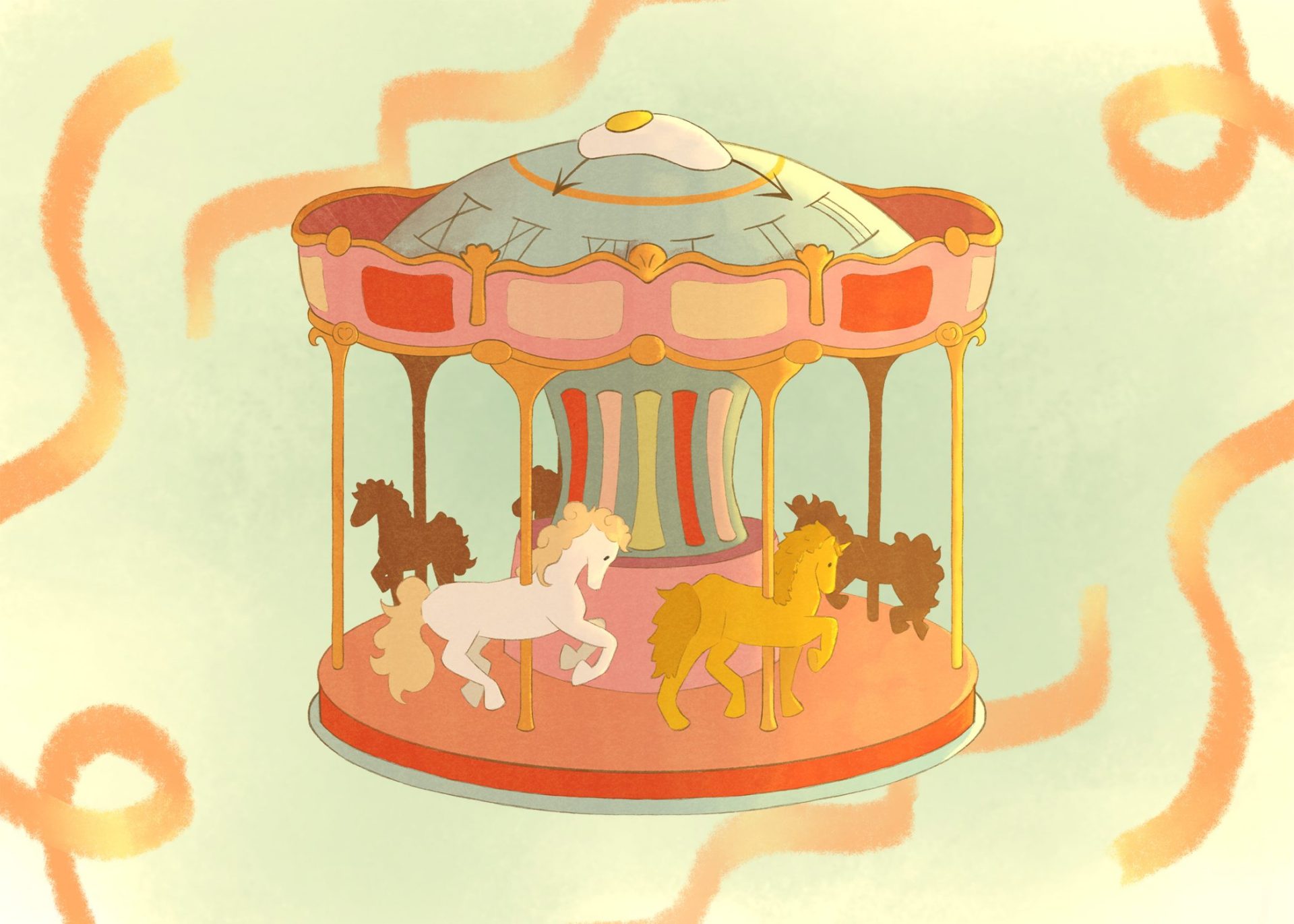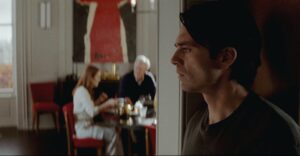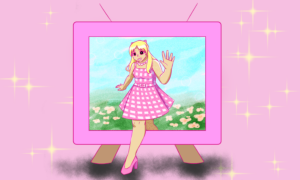To race against time is to lose, and Almut hates losing.
We Live in Time (2024) follows the lives of Almut (Florence Pugh), a headstrong, aspiring chef, and Tobias (Andrew Garfield), a mellow, modest Weetabix corporate employee. Brought together by chance at critical points in both of their lives—one having just opened a restaurant and the other newly divorced—the two hasten to cherish every remaining moment of their love story after Almut is diagnosed with a terminal illness.
The couple couldn’t be more different: whereas Almut doesn’t seem to desire the idea of settling down and getting married, Tobias wants nothing more than to start a family. That clash is the matriarch of all the film’s conflicts, making the couple’s relationship all the more unconventional. Still, the film pushes the audience to become increasingly invested in their story as the couple tries to reconcile their fundamental differences. A tale of star-crossed love, We Live in Time appeals to the yearner in us all.
Pugh and Garfield complement each other perfectly. Their compatibility was teased in the film’s early press release photos from August, which portrayed the duo sharing a carousel seat, smiles merry and bright—the chemistry palpable despite the intrusive presence of a now viral bright yellow horse. Both actors deliver phenomenally detailed and nuanced performances that highlight the juxtaposition of their characters’ personalities: Almut the embodiment of a fighter with a fire that burns brighter in the face of insurmountable challenge, and Tobias the epitome of a soft, heart-melting girl dad.
We Live in Time is an aesthetically beautiful film, with gorgeous people and gorgeous scenes. In a smartly conceived shot after the couple’s first night together, the door to Almut’s apartment evenly divides the frame, with the couple leaning on either side and laughing before leaving. In just one brief moment, the scene communicates the breadth of tender, innocent joy that comes with meeting someone new for the first time. And the aforementioned carousel scene—despite how random and silly the horse is—is characterized by brilliant color grading and cinematic panning that make the moment feel magical.
The movie isn’t just a work of technical mastery: it also features masterful storytelling through its expert use of symbolism. Simple motifs like a dog and an egg being cracked are connected to themes of death, grief, and memory and carried wholly, and often subtly, from beginning to end. For instance, there is a certain dramatic irony in Tobias crashing a baby shower after the two fight about having kids. Never overstating their meaning, the hidden nuances allow both casual moviegoers and those more attuned to studying cinema to find equal entertainment.
The clever use of irony exemplifies the production’s overall tact in marrying comedic elements with darker, sadder themes—two genres that both make up a substantial amount of director John Crowley’s filmography. For a movie with a backdrop as melancholy as this one, the film does an excellent job of fostering an environment where we feel comfortable laughing. Witty, well-timed jokes and scenes that embrace absurdity prompt chuckles to escape from our lips, but the humor never detracts from the gravity of the conflicts at hand. This delicate balance is a testament to both the writers’ care in developing scenes that manage to be simultaneously funny, heartfelt, and authentic and the leads’ dedication to delivering them.
Perhaps the most crucial element to the film’s authenticity is that both individuals are critically flawed: Tobias’ Achilles’s heel is his passiveness, and Almut’s is her stubbornness. It’s unclear whether they ever really learn to meet in the middle. It’s possible that Tobias genuinely does grow to let go of his hopeless pursuit of a picture-perfect marriage, but it’s equally likely that he, out of love, surrenders to Almut’s will without actually believing it. Similarly, we can’t really tell if Almut came to find fulfillment in the mundane or was begrudgingly brought to compromise.
Part of this ambiguity comes from the fact that the film lacks any climax or confrontation that packs enough of a punch to showcase significant growth on either person’s part. The couple has their fair share of fights and the dialogue is admittedly well-written—it flows naturally and feels realistic—but there is no threat of intensity or explicit apology that follows their spats. Instead, the outcomes of their conversations are implicitly communicated via sudden jumps in time. For instance, we watch Almut tell Tobias that her competitive commitments conflict with a celebration he had planned, and then we see him throwing away the invitations. Since we rarely see the process of one person mentally changing or falling more in love—these shifts are just expressed based on how their behavior has changed at a different point in time—it does beg the question of whether it is lazy scriptwriting to rely entirely on audience inference to do all the work.
Ultimately, while their questionable redemption arcs make Almut and Tobias arguably difficult to root for at times, the fact that they’re left open to interpretation is perhaps reflective of the harsh, realistic story that the movie wholeheartedly commits itself to telling.
In an interview at the film’s North American premiere, Crowley shared that “we set out to make a real story about these two people.” Throughout the runtime, the movie never stops being a romantic comedy, but the one place it deviates from your classic romcom is the glaring lack of a fairytale happily-ever-after. Certainly, there are endings that would have been happier and much more quintessential—Almut realizes her career dreams, the two get married, the medical limits placed on the couple’s time together disappear—but they wouldn’t have felt real. Those alternative resolutions would have given us more closure as an audience, but to give the couple a sunshine-and-rainbows ending would almost have felt like a bitter farce of the painfully real and prevalent battle that they fought. In fact, the ending only lasts a couple minutes, which leaves us feeling a bit empty, and yet perhaps that was the point—we live only in our present time, and there’s no point dwelling on the past or the future.






